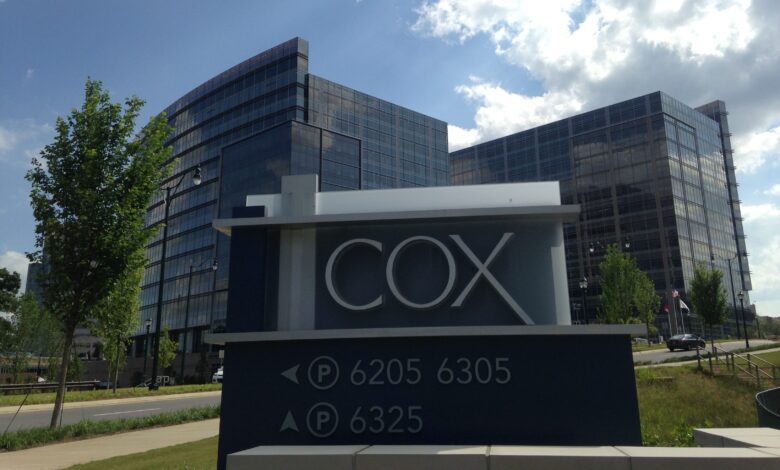Cox Communications takes copyright infringement battle with record labels to US Supreme Court

Cox Communications, one of the US’s largest internet service providers, has asked the US Supreme Court to overturn a lower court’s ruling that held it liable for music copyright infringement allegedly carried out by its subscribers.
“This ruling, should it stand, would force ISPs to terminate internet service to households or businesses based on unproven allegations of infringing activity, and put them in a position of having to police their networks – contrary to customer expectations,” Cox said in a statement.
Forcing internet providers to cut off service to subscribers “would kick an entire household off the internet… Cox’s subscribers, and much of the world, rely on internet access in just about every aspect of their daily life – from video-calling friends and family to completing online courses, and working from home to securing the home through connected security devices.”
The company also argued the lower court’s ruling is a threat to business. “From hotels, restaurants, and coffee shops to hospitals and universities, businesses that offer Wi-Fi to their customers or employees could lose all connectivity because of the unlawful acts of a few,” Cox stated.
“Termination would not only eliminate their ability to offer Wi-Fi, but with business functions like payroll, inventory management, and payment processing being supported by internet connectivity, it also impacts their ability to operate altogether… This is not how the internet should work.”
Cox was sued in 2018 by numerous record companies, including those owned by Sony Music Entertainment (the lead plaintiff), as well as Universal Music Group and Warner Music Group.
The music companies argued that Cox Communications “knowingly contributed to, and reaped substantial profits from, massive copyright infringement committed by thousands of its subscribers.”
“Cox received hundreds of thousands of notices of infringement and did not adequately respond or comply with its obligations to stop its subscribers from infringing on peer to peer networks,” National Music Publishers’ Association (NMPA) President David Israelite said at the time.
The case was widely seen as a test of a new strategy to sue internet providers over copyright infringement, rather than pursuing individual infringers, a method that had proven costly and unwieldy, and at times triggered negative publicity for rights holders.
“From hotels, restaurants, and coffee shops to hospitals and universities, businesses that offer Wi-Fi to their customers or employees could lose all connectivity because of the unlawful acts of a few.”
Cox Communications, in a petition to the US Supreme Court
In 2020, a federal court jury in Virginia sided with the music companies, finding Cox liable for “contributory” and “vicarious” copyright infringement. The jury awarded more than $99,000 for each infringement of 10,017 musical works, a judgment that put Cox on the hook for around $1 billion in damages.
Since that initial legal victory, record companies have pursued litigation against a number of other internet providers; by Cox’s count, 10 such lawsuits have been filed in the US.
One of the most prominent was brought against Charter Communications in 2019. The internet provider settled with record companies out of court in 2022.
Another involves Altice USA, which was sued by a number of rights holders, including BMG, as well as Universal Music, Capitol Records and Concord Music Group, in 2022. Sony Music Entertainment and Warner Music Group filed a separate lawsuit against Altice in 2023.
However, Cox has continued to litigate the case brought by the record companies.
Calling the initial judgment “unwarranted, unjust and an egregious amount,” it challenged the ruling at the 4th Circuit Court of Appeals.
This past February, the appellate court handed down a ruling that satisfied neither the record companies nor Cox: It upheld the finding of “contributory” copyright infringement, but rejected the finding of “vicarious” infringement, and vacated the $1 billion penalty against Cox that jurors had approved, ordering a new trial.
The appeals court rejected the damages awarded because the payment of monthly fees by subscribers to Cox’s internet service, “even by repeat infringers, was not a financial benefit flowing directly from the copyright infringement itself… Cox would receive the same monthly fees even if all of its subscribers stopped infringing.”
In its petition to the Supreme Court, filed on Thursday (August 15), Cox argued that the 4th Circuit Court of Appeals had erred in its interpretation of precedent in its ruling, and in doing so it had set a different standard for copyright infringement liability than what other courts follow. It asks the Supreme Court to issue a definitive ruling on which standard courts should follow.
The Supreme Court’s review “is needed to restore a uniform, nationwide copyright damages regime,” the company said.
In its petition, which can be read in full here, Cox argues that fewer than 1% of its subscribers were alleged to have engaged in music piracy during the period in question in the court trial (2013-2014).
Cox said that, during that period, it had been “buried” in over a million automated copyright infringement notices per year from music rights holders.
“To address these notices, Cox developed a ‘graduated response program…’ For each robo-notice, Cox would email a warning to the subscriber. If notices persisted, Cox would escalate with temporary service suspensions requiring subscribers to speak with Cox investigators to restore service,” the petition stated.
This approach “got 95% of that less than 1% to stop” their infringing activities, Cox said.Music Business Worldwide
Source link

